About Us
THE EUROPEAN PRISON OBSERVATORY
The European Prison Observatory is a project coordinated by the Italian Ngo Antigone, and developed with financial support from the Criminal Justice Programme of the European Union.
The European Prison Observatory studies, through quantitative and qualitative analysis, the condition of the national prison systems and the related systems of alternatives to detention, comparing these conditions to the international norms and standards relevant for the protections of detainees' fundamental rights. The European Prison Observatory highlights to European experts and practitioners 'good practices' existing in the different countries, both for prison management and for the protection of prisoners' fundamental rights. Finally it promotes the adoption of the CPT standards and of the other international legal instruments on detention as a fundamental reference for the activities of the available national monitoring bodies.
The European Prison Observatory is directed by Mauro Palma, Italian NPM and former President of the European Committee for the prevention of torture and Inhuman or degrading treatment or punishment.
The European Prison Observatory activities are coordinated by Alessio Scandurra, member of Antigone’s managing board coordinator of Antigone’s Observatory on Italian prison conditions.
The partner organizations are:
|
ANTIGONE Associazione Antigone is an Italian NGO that promotes human rights in the criminal justice system. Antigone is an Italian NGO founded in 1991, which deals with human right protection in the penal and penitentiary system. Antigone carries out cultural work on public opinion through campaigns, education, media, publications and the academic review "Antigone". The NGO conducts many studies and researches on penal and penitentiary issues and it cooperates in writing normative texts on relevant topics. Antigone is committed to monitoring prisons. Its Observatory on Italian prisons involves around 100 people and has been active since 1998, when Antigone received from the Ministry of Justice special authorizations to visit prisons with the same power that the law gives to parliamentarians. Every year, Antigone’s Observatory publishes a Report on the Italian penitentiary system. Antigone's prison Ombudsman collects complaints from prisons and deals with dozens of individual cases per week. Antigone’s lawyers and physicians also operate in some Italian prisons through legal clinics in some cases established in cooperation with universities. Antigone also carries on investigations about ill-treatments and is at times formally involved in the related trials. Antigone leads the European Prison Observatory, funded by the European Union. Antigone produces and hosts “Jailhouse Rock”, a weekly radio broadcast on music and prisons. In 2014, Antigone created “Atletico Diritti”, a sports club involving prisoners and other marginalized groups.
|
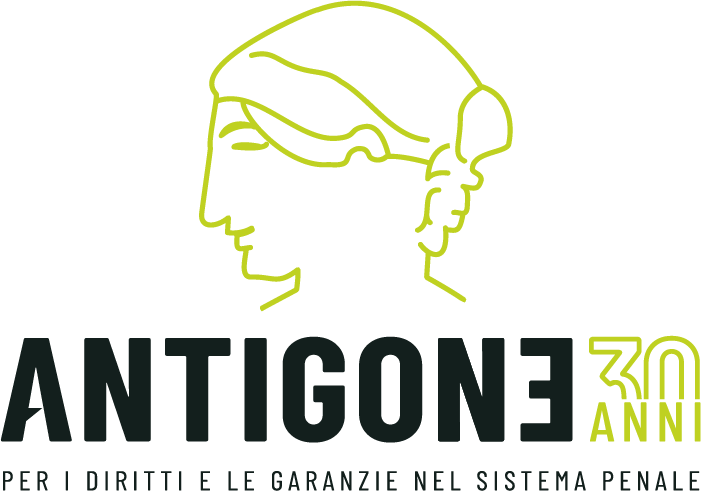 |
| Antigone
Via dei Monti di Pietralata 16 – 00157 Roma Tel. +39 064511304, Fax +39 06233215489 segreteria[at]antigone.it |
| ASSOCIATION FOR THE DEFENCE OF HUMAN RIGHTS IN ROMANIA - THE HELSINKI COMMITTEE The Association for the Defence of Human Rights in Romania – the Helsinki Committee (APADOR-CH) is a non-governmental, not-for-profit organization, established in 1990. APADOR-CH's Mission is to take action for the protection of human rights and the establishment of equilibrium when they are in danger or infringed upon. |
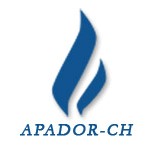 |
|
APADOR-CH |
|
BULGARIAN HELSINKI COMMITTEE The Bulgarian Helsinki Committee (BHC) is an independent, non-governmental, not for profit organisation of the civil society for defending basic human rights in the Republic of Bulgaria: political, civil, cultural, and social. It was established in 1992. |
 |
|
Bulgarian Helsinki Committee |
|
CENTRE FOR CRIME AND JUSTICE STUDIES The Centre for Crime and Justice Studies is an independent public interest charity that engages with the worlds of research and policy, practice and campaigning. It aims to advance public understanding of crime, criminal justice and social harm. The organisation was founded in 1931 and adopted its current name in 1999. CCJS operates through the production of publications and events, interventions into the media, political, practice and policy worlds, through our online and social media presence and through an extended network of members, academics, researchers and practitioners. The Centre publishes the British Journal of Criminology in partnership with Oxford University Press. |
 |
|
Centre for Crime and Justice Studies 2 Langley Lane, Vauxhall, London SW8 1GB Tel. +4402078406110 Info[at]crimeandjustice.org.uk |
|
EUROPEAN PUBLIC LAW ORGANIZATION
The European Public Law Organization - EPLO is dedicated to the creation and dissemination of knowledge in the area of Public Law and Governance. This includes national, comparative and European public law, human rights law and the promotion of European values. Currently EPLO has been involved in up to 200 educational, research, training, institution building and other activities. Assistance is also provided to democratic institutions in over 70 countries and promoting cooperation with institutions, organizations and bodies.
|
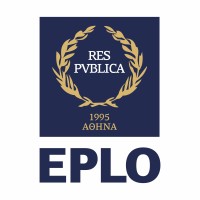 |
|
European Public Law Organization 16, Achaiou St.,Kolonaki,10675 Athens. Tel. +30211 311 0671 info[at]eplo.int www1.eplo.int |
|
FACHHOCHSCHULE DORTMUND UNIVERSITY The Fachhochschule Dortmund University has broad subjects and specialized research including Applied Social Science, Architecture, Design, Computer Science and Engineering. Experienced professors and scientists ensure rigorous and innovative research through a multidisciplinary,
|
 |
|
Fachhochschule Dortmund Tel. +49 (0)231 9112-0 info[at]fh-dortmund.de |
|
HELSINKI FOUNDATION FOR HUMAN RIGHTS The Helsinki Foundation for Human Rights (HFHR) is a non-governmental organization established in 1989 in order to promote human rights and the rule of law as well as to contribute to the development of an open society in Poland. Its creation was preceded by seven years of activity of the Helsinki Committee in Poland which existed in the underground since 1982. Nowadays, HFHR is one of the most experienced and professional non-governmental organizations operating in the field of human rights in Poland and Europe. Since its beginnings HFHR has been involved in various actions related to prisoners’ rights. It was monitoring detention facilities and representing parties or preparing legal submissions to national and international courts and tribunals which dealt with cases concerning prisoners’ rights. The aim of such submissions was to influence court decisions on laws and practices that HFHR find contrary to European standards of human rights protection. In recent years HFHR have carried out number of seminars on the various issues related to penitentiary system in Poland. They were focused on the problem of healthcare in Prison, dangerous detainee regime and overcrowding in Polish penitentiary institutions. |
|
|
Helsinki Foundation for Human Rights 11 Zgoda St., 00-018 Warsaw Tel. +48 22 556 44 40, Fax +48 22 556 44 50 hfhr[at]hfhr.org.pl |
| HUNGARIAN HELSINKI COMMITTEE
The Hungarian Helsinki Committee is a non-governmental watchdog organization that protects human dignity and the rule of law through legal and public advocacy methods. |
 |
| Hungarian Helsinki Committee
Magyar Helsinki Bizottság 1074 Budapest, Dohány utca 20. II/9. 1242 Budapest, Pf. 317 Tel./fax: (36 1) 321 4323, 321 4327, 321 4141 helsinki[at]helsinki.hu
|
|
ISCTE-INSTITUTO UNIVERSITÁRIO DE LISBOA (CIES_ISCTE) ISCTE-Instituto Universitário de Lisboa (ISCTE-IUL), is a public university, founded in 1972. In the context of its teaching, investigation and social services activities, it is an academic institution dedicated to the education of qualified specialists and personnel. ISCTE-IUL is a research university with 9 research centres. CIES-ISCTE (Centre for Research and Studies in Sociology at ISCTE-University Institute of Lisbon) is one of the four best classified social sciences research centres and home to the research team composed of António Pedro Dores, Nuno Pontes, Ricardo Loureiro and Vera Silva who represent Portugal in the European Prison Observatory. |
 |
|
CIES-ISCTE
Edifício ISCTE, Av. das Forças Armadas – 1649-026 Lisboa Tel. +351 210464018, Fax. +351 217940 074 cies[at]iscte.pt |
|
LATVIAN CENTRE FOR HUMAN RIGHTS The Latvian Centre for Human Rights was established in 1993 with a view to promoting human rights and tolerance in Latvia through monitoring, research, advocacy, legal assistance and training activities. LCHR focuses on issues related to human rights in places of detention (prisons, police, immigration detention facilities), integration (minority rights and tolerance), non-discrimination, hate crimes, asylum/migration, freedoms (of assembly, speech), etc. LCHR provides legal consultations to victims of human rights violations, including the representation of clients in court. LCHR frequently provides expert opinions both locally and internationally. Apart from collecting data, providing analysis and expertise, conducting research and publishing reports, the LCHR has been actively involved in advocacy for change, ranging from raising public awareness to specific policy or legislative changes. In May 1998, the LCHR received the EU-US Democracy and Civil Society Award. In October 2003 the LCHR became the recipient of the first Max Van der Stoel Prize (the award recognizes outstanding contributions towards the improvement of the situation of national minorities in the OSCE participating States) for being “an authoritative and objective source on human rights and inter-ethnic issues in Latvia”. LCHR is the national focal point of the EU Fundamental Rights Agency’s FRANET network and member of the International Network against Cyber Hate. |
 |
|
Latvian Centre for Human Rights 13 Alberta street - Riga LV-1010 Tel. +371 67039290, Fax +371 67039291 office[at]humanrights.org.lv |
|
LUDWIG BOLTZMANN INSTITUTE OF HUMAN RIGHTS (BIM) The Ludwig Boltzmann Institute for Human Rights (BIM) is an institute of the Ludwig Boltzmann Society. As Austria's leading human rights institute, it works at the interface between theory and practice and contributes to current debates and informed political decisions. Its collaboration with the University of Vienna enables BIM to combine excellent academic research with practice oriented non-academic work. The BIM has excellent national, European and international networks and provides its expertise to large-scale projects not only throughout Europe, but also in Africa and Asia. The institute is currently focusing amongst others on the following areas of research: Human Dignity and Public Security, Children´s rights as well as Equality and Diversity. The Human Dignity and Public Security department has carried out extensive research on the effectiveness of torture prevention measures. In addition to conducting research, the department uses its expertise and experience in investigating and monitoring human rights violations to provide evidence-based and targeted advice as well as support to torture prevention actors. In the past, the team has supported State actors, notably oversight mechanisms, such as National Preventive Mechanisms and National Human Rights Institutions, as well as civil society actors worldwide. Moreover, the Department coordinates the global information platform “Atlas of Torture” for the prevention of torture and ill-treatment.
|
|
|
Ludwig Boltzmann Institute of Human Rights Freyung 6 (Schottenhof) 1. Hof, Stiege II tel. +43 1 4277 27420 This email address is being protected from spambots. You need JavaScript enabled to view it.
|
|
OBSERVATOIRE INTERNATIONAL DES PRISONS - OIP-SF The French section of the International Prison Watch (Observatoire international des prisons - OIP-SF) is a non-profit non-government organisation created in 1996 in order to promote respect for the human rights of incarcerated persons, with respect to the international human rights instruments. In concrete terms, the OIP collects and gives publicity to information on the conditions of detention in order to raise public awareness and alerts public authorities to the problems detected; - informs imprisoned individuals about their rights and supports them in the procedures to enforce these rights; - campaigns for the passing of laws and other appropriate measures to ensure guaranteed respect of prisoner's rights and favours limited use of incarceration, reduction of the penalty scale and development of alternatives to penal prosecution and non-custodial measures.
|
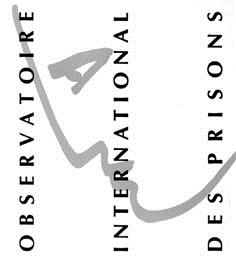 |
|
Observatoire International des Prisons - section française (OIP-SF) 7 bis rue Riquet – 75019 Paris Tel. +33 0144528790, Fax +33 0144528809 contact[at]oip.org |
|
DEPARTMENT OF SOCIAL POLICY OF THE DEMOCRITUS UNIVERSITY OF THRACE Democritus University of Thrace (DUTH) was founded in 1973 and today consists of 20 Departments located in Thrace, Greece. The Research Committee of DUTH, via its Special Account, is responsible for the allocation and administration of funds from national, european and international sources, intended to cover the costs necessary for the needs of research, education, training, development and continuing education projects and projects for scientific, technological and artistic services, special studies, measurements, laboratory tests and analysis performed or provided by the Scientific staff of the University in collaboration with other Specialists/Researchers. The Department of Social Policy, established in 2019, is operating since September 2019, after the division of the Department of Social Administration and Political Science in three different academic units, the Departments of Social Work, Social Policy and Political Science respectively. The purpose of the Department of Social Policy is to provide students with the necessary theoretical and practical knowledge for the design, development and evaluation of social policies and to familiarize them with the study of contemporary social problems. The new department has a strong multidisciplinary character and its students acquire a level of knowledge and experience that allows them to use expertise,skills and methods from a wide range of social sciences, such as Social Policy, Sociology, Economics, Law, Criminology and Political Science. In addition, students are prepared to understand how these sciences are constantly changing and restructured and to interpret the different perceptions and values of individuals from different social, cultural and economic groups. Moreover, the Department provides the possibility of conducting in-depth and comparative research, through the operation of the Laboratory for Social Data Analysis and Informatics and the provision of doctoral degree studies, on issues that fall within the broader field of social policy. Graduates of the Department can work in social institutions, both in the public, private and third sectors, dealing with the design and implementation of social policy, as well as dealing with social problems. Indicatively, graduates of the department may be employed in various public services and social structures, education and healthcare units, judicial agencies, prisons and probation services, universities and research centers, non-governmental social organizations and local government services, social insurance organizations etc.. In addition, graduates have the opportunity to work in public and private institutions abroad, such as the European Union, the UN, the OECD, multinational corporations and non-governmental organizations promoting social purposes. |
 |
|
Department of Social Policy of the Democritus University of Thrace
Department of Social Policy
Address: 1, P. Tsaldari Street
Komotini 69100 Greece
Tel. 00 30 25310 39380Fax 00 30 25310 39421 secr[at]sp.duth.gr
|
|
UNIVERSITÀ DEGLI STUDI DI PADOVA The University of Padova is a well-known higher education and research institution, not only for being one of the oldest universities in the Western World and having hosted the chair of Galileo Galilei, but also for the excellence of the research nowadays performed. In all the international rankings the University of Padova performs among the best Italian universities, and in the Italian scenario it is distinguished for its ability to copiously self-finance research projects.
|
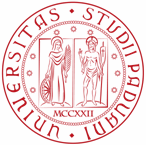 |
|
Università degli Studi di Padova Via 8 febbraio 1848, 2, 35122 Padova tel: +39 0498275111 ricerca.fisppa[at]unipd.it |
|
UNIVERSITÀ DEGLI STUDI DI TORINO The University of Turin is a university in the city of Turin in the Piedmont region of north-western Italy. It is one of the oldest universities in Europe (one of the oldest in history), and continues to play an important role in research and training. It is steadily ranked among the top 5 Italian universities and it is ranked third for research activities in Italy, according to the latest data by ANVUR. Many of the protagonists of Italian political and social life in the 20th century, such as Antonio Gramsci and Piero Gobetti, Palmiro Togliatti and Massimo Bontempelli, graduated from Turin University. With its rich variety of subjects, the University of Turin has always maintained a characteristic cultural imprint made up of rigour and independence in teaching, and a spirit of service and openness to European culture. |
 |
| Università degli Studi di Torino
Via Verdi, 8 - 10124, Torino tel: +39 011 6706111 |
|
UNIVERSITY OF BARCELONA- OBSERVATORY OF PENAL SYSTEM AND HUMAN RIGHTS The Observatory of the Penal System and Human Rights from the University of Barcelona is composed by teachers, students, graduates, professionals and It works on research, teaching and observation and inspection of the institutions of the criminal justice system trying to work for culture of human rights, defending the rights and freedoms of individuals and strengthen the principles and values of the democratic State of law. The OPSHR: 1. Observes, analyses and reports on the functioning of the institutions of the criminal justice system, prisons, police stations, detention centres for foreigners, security forces; 2. seeks to contribute to human rights, increasingly threatened by security policies, monitoring and control; 3. oversees compliance with the strict law in the criminal justice system and works to promote transparency. |
 |
|
Centre de Recerca Observatori del Sistema Penal i Drets Humans (OSPDH) Universitat de Barcelona - Facultat de Dret Avda. Diagonal 684, Aula 23, Despatx 1, 08034 Barcelona Tel. +34 934039672, Fax. +34 934021067 observsp[at]ub.edu
|


